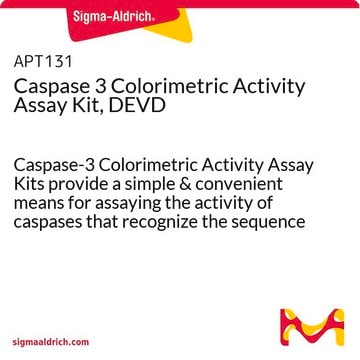CASP3F
Caspase 3 Assay Kit, Fluorimetric
Synonym(s):
Caspase-3 Activity Fluorometric Kit
About This Item
Recommended Products
usage
sufficient for 1,000 multiwell tests
sufficient for 100 standard tests (2 ml)
Quality Level
shipped in
dry ice
storage temp.
−20°C
Gene Information
human ... CASP3(836)
General description
Application
Unit Definition
Kit Components Only
- Water (17-18 megaOhm) 125 mL
related product
Signal Word
Warning
Hazard Statements
Precautionary Statements
Hazard Classifications
Eye Irrit. 2
Storage Class Code
10 - Combustible liquids
WGK
WGK 3
Certificates of Analysis (COA)
Search for Certificates of Analysis (COA) by entering the products Lot/Batch Number. Lot and Batch Numbers can be found on a product’s label following the words ‘Lot’ or ‘Batch’.
Already Own This Product?
Find documentation for the products that you have recently purchased in the Document Library.
Customers Also Viewed
Articles
Cellular apoptosis assays to detect programmed cell death using Annexin V, Caspase and TUNEL DNA fragmentation assays.
Our team of scientists has experience in all areas of research including Life Science, Material Science, Chemical Synthesis, Chromatography, Analytical and many others.
Contact Technical Service










